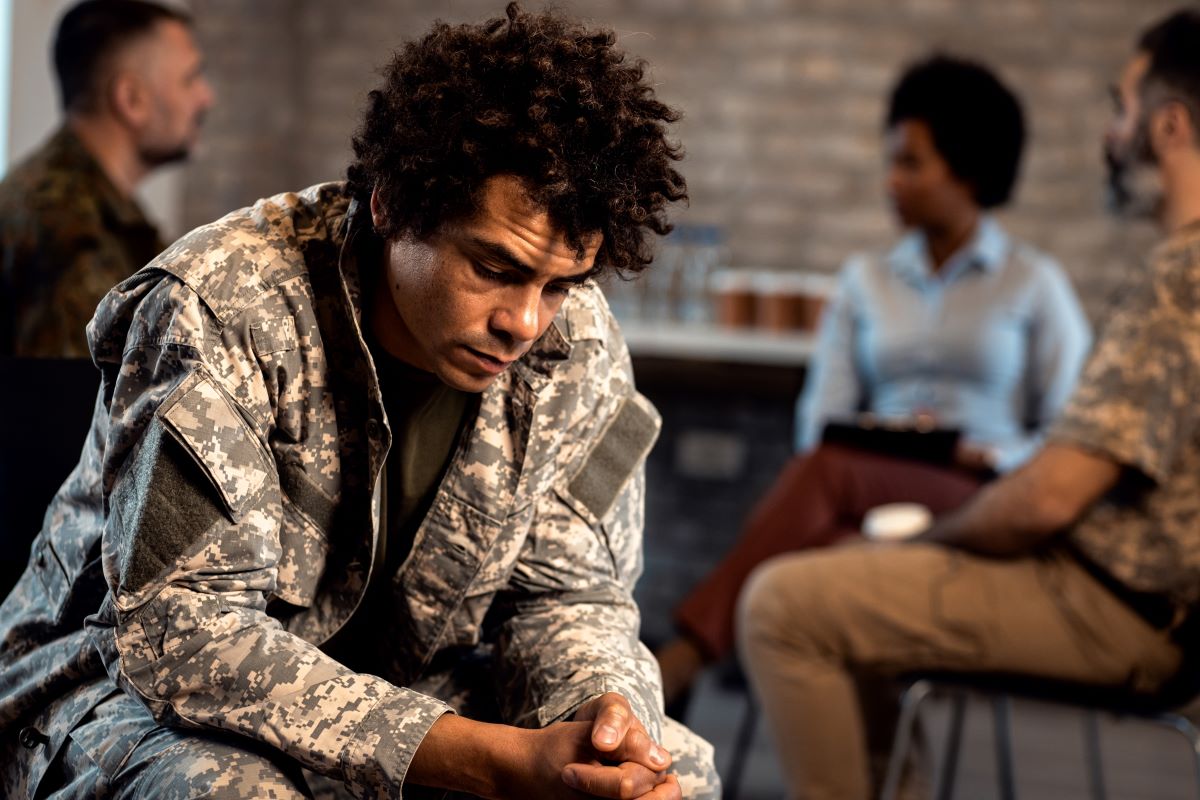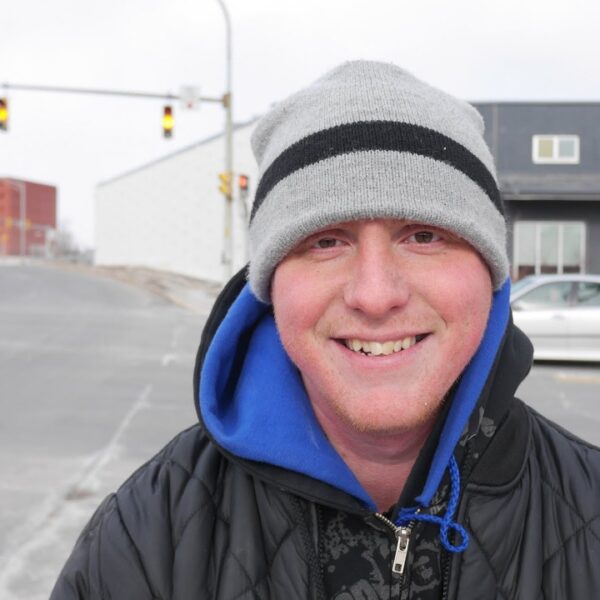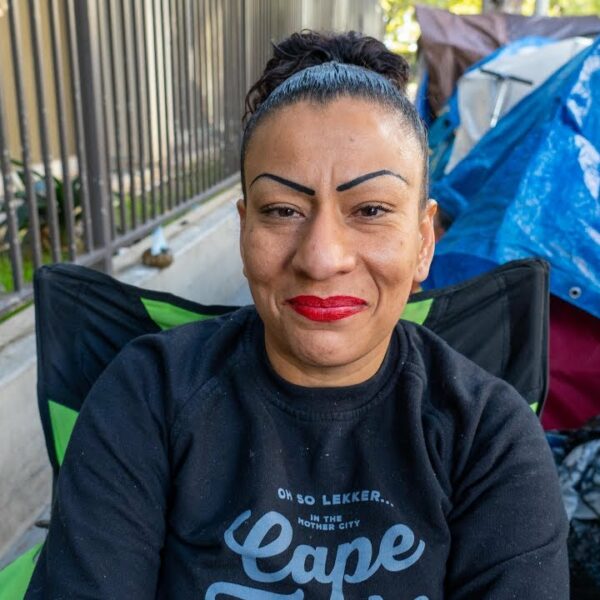This is a Lethal Combination
The steps of Fifth Avenue Presbyterian Church in New York City are truly a sight to behold. Fitted in centuries-old Victorian Gothic architecture, the surrounding sidewalks and sloping stairs serve as a gathering place for Christians, a historical site for enthusiasts, a gateway for music lovers, and an entry point for the 286-foot steeple that once pierced the sky as the tallest building in the Big Apple.
For homeless Vietnam Veteran Gerald, these stairs are more than just an ancient architectural marvel or a modern gateway into where the local pastors preach. For Gerald, those stairs are home, the only place in the city where he can rest without the threat of becoming arrested.
“I sleep here,” Gerald said firmly in an interview with Invisible People reporters. “This is the only church in New York – probably in the whole of America – that went to court so that we could sleep on their stairs.”
Gerald went on to explain the hardships he faced as a homeless veteran in New York City, detailing the lack of safety and access to hygienic products as significant barriers in everyday life. Keenly, Gerald relied on his military training to survive unsheltered homelessness.
Sadly, however, his military service was part of what put him at risk of homelessness in the first place. And because Gerald is an African American veteran, he is also more likely to suffer chronic homelessness and chronic illness. From this perspective, it is easy to see that the city’s streets are just as Gerald described them: “cruel.”
Studies Suggest Black Veterans are Almost 4x as Likely to Become Homeless as White Veterans
Research dating back to the ’90s shows that African American veterans experience homelessness at even higher rates than veterans of other nationalities. It is tragic when you consider the fact that all veterans, regardless of race, are 50% more likely to become homeless than non-veterans.
This overrepresentation was noted in a 2022 health disparities paper titled “Health Service Access Among Homeless Veterans: Health Access Challenges Faced by Homeless African American Veterans,” published by the National Library of Medicine.
Facing such an extreme risk of homelessness is challenging enough. But when quantifying hardship, this is only scratching the surface. Further research reveals that black veterans are not just more likely to become homeless, but they are also more likely to remain homeless, a condition social workers refer to as chronic homelessness.
Chronic Homelessness Disproportionately Affects the Black Community
Chronic homelessness is a state of affairs wherein an individual or family is forced to reside in a place unfit for human habitation, such as a parking lot, street corner, vehicle, or an emergency shelter, while contending with a disability. To fit the Department of Housing and Urban Development’s criteria for chronic homelessness, one has to:
- Remain homeless for at least a full calendar year
or
- Fall in and out of homelessness at least four times over three years with episodes that equate to at least twelve months total
Put simply, chronic homelessness is a near-perpetual state of living unhoused that is often the result of a disability.
According to reviews of homeless literature, black/African Americans are simultaneously more likely to become homeless and less likely to exit homeless shelters into housing, making them more chronically homeless statistically. At the same time, African American men, particularly veterans, are vastly overrepresented in the unsheltered homeless community, which is also a separate indicator of chronic homelessness.
The question remains: which system is to blame for this discrepancy?
Is it the systemic racism that is ever ripping at the fabric of our society, rearing its ugly head in the form of housing discrimination?
Is it the housing and homeless sector where African American veterans are falling through the cracks?
Or is it the national healthcare system, where racial disparities abound in communities housed and unhoused?
The most likely answer is yes to all three.
A 2023 Bill Introduced on November 9 Seeks to Recognize and Repair These Health Disparities
On November 9, 2023, Democratic Representative Joyce Beatty, who serves in Ohio’s 3rd congressional district, introduced a bill that would address the health disparities that African American military veterans face and hopefully reduce the current levels of chronic homelessness.
The bill, titled H.Con.Res. 76, calls upon the VA to take action and to address and rectify chronic illness and chronic homelessness within this already marginalized community. Their patriotism and heroism must be recognized by how they are treated when they get home from the battlefield, not how they are spoken of at times of recollection.
The difference between actions and words is evident in the data as well as the history.
This bill acknowledges the modern struggles of African American US military veterans while paying tribute to soldiers from the past. Notable figures like the Tuskegee Airmen and the Six Triple Eights are mentioned in the lines of fine print.
To quote verbiage from the bill directly, there exists a “need for the Department of Veterans Affairs to continue to work to eliminate any health and benefit disparities for our Nation’s minority veterans.”
Talk to Your Representatives About Homelessness Amongst African American Veterans
Gratefully, veteran homelessness is on a downward trend thanks to a vested effort to reduce homelessness within this subpopulation. However, this data does not apply to the African American veteran population. Their rates of homelessness are currently increasing.
Notedly, individuals from ethnic minority backgrounds who served in our military are being neglected by all of the systems said to be in place to support them. Talk to your local legislators about bringing this issue to light and drafting laws that make housing a human right.













